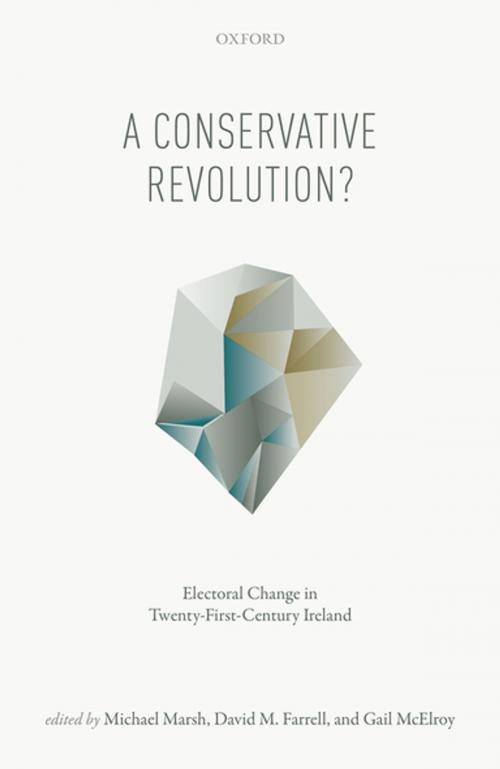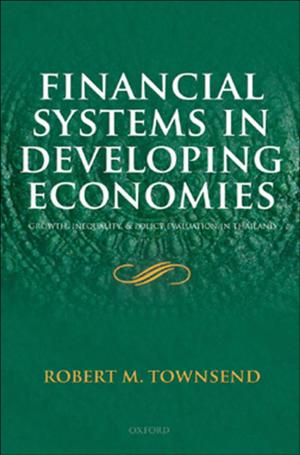A Conservative Revolution?
Electoral Change in Twenty-First Century Ireland
Business & Finance, Economics, Economic History, Nonfiction, Social & Cultural Studies, Political Science, Politics, History & Theory| Author: | ISBN: | 9780192519719 | |
| Publisher: | OUP Oxford | Publication: | March 1, 2017 |
| Imprint: | OUP Oxford | Language: | English |
| Author: | |
| ISBN: | 9780192519719 |
| Publisher: | OUP Oxford |
| Publication: | March 1, 2017 |
| Imprint: | OUP Oxford |
| Language: | English |
The 2011 general election in the Republic of Ireland, which took place against a backdrop of economic collapse, was one of the most dramatic ever witnessed. The most notable outcome was the collapse of Fianna Fáil, one of the world's most enduring and successful parties. In comparative terms Fianna Fáil's defeat was among the largest experienced by a major party in the history of parliamentary democracy. It went from being the largest party in the state (a position it had held since 1932) to being a bit player in Irish political life. And yet ultimately, there was much that remained the same, perhaps most distinctly of all the fact that no new parties emerged. It was, if anything, a 'conservative revolution'. A Conservative Revolution? examines underlying voter attitudes in the period 2002-11. Drawing on three national election studies the book follows party system evolution and voter behaviour from boom to bust. These data permits an unprecedented insight into a party system and its voters at a time of great change, as the country went through a period of rapid growth to become one of Europe's wealthiest states in the early twenty-first century to economic meltdown in the midst of the international Great Recession, all of this in the space of a single decade. In the process, this study explores many of the well-established norms and conventional wisdoms of Irish electoral behaviour that make it such an interesting case study for comparison with other industrialized democracies.
The 2011 general election in the Republic of Ireland, which took place against a backdrop of economic collapse, was one of the most dramatic ever witnessed. The most notable outcome was the collapse of Fianna Fáil, one of the world's most enduring and successful parties. In comparative terms Fianna Fáil's defeat was among the largest experienced by a major party in the history of parliamentary democracy. It went from being the largest party in the state (a position it had held since 1932) to being a bit player in Irish political life. And yet ultimately, there was much that remained the same, perhaps most distinctly of all the fact that no new parties emerged. It was, if anything, a 'conservative revolution'. A Conservative Revolution? examines underlying voter attitudes in the period 2002-11. Drawing on three national election studies the book follows party system evolution and voter behaviour from boom to bust. These data permits an unprecedented insight into a party system and its voters at a time of great change, as the country went through a period of rapid growth to become one of Europe's wealthiest states in the early twenty-first century to economic meltdown in the midst of the international Great Recession, all of this in the space of a single decade. In the process, this study explores many of the well-established norms and conventional wisdoms of Irish electoral behaviour that make it such an interesting case study for comparison with other industrialized democracies.















